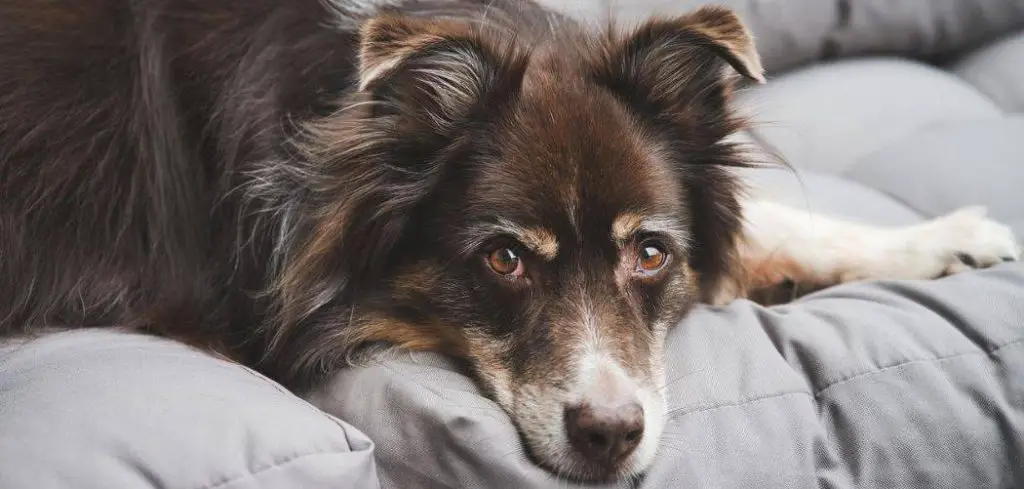It can be worrying when a dog suddenly starts urinating more than usual during the night. This change in bathroom habits can disturb both your dog’s rest and your own, while also pointing to an underlying health concern that needs attention.
We outline the common causes of excessive urination in dogs, what you can do at home, and when to seek veterinary help.
Dog Excessive Urination at Night — Why It Happens
Excessive nighttime urination in dogs often signals an underlying medical condition. It may be related to urinary tract infections, kidney disease, diabetes, or hormonal imbalances like Cushing’s disease. In some cases, medications or even age-related changes can play a role.
No matter the cause, frequent urination at night should not be ignored because it often indicates that your dog’s body is struggling to regulate fluid balance properly.

Excessive Urination in Dogs at Night: Common Causes
Urinary Tract Infection (UTI)
A UTI is one of the most common reasons for sudden, excessive urination. Infections cause inflammation and irritation of the bladder, making your dog feel the urge to urinate more often — including overnight.
You might notice straining, whining while peeing, or small frequent puddles. UTIs can be painful and, if untreated, may spread to the kidneys, making early veterinary care important.
Read more: Dog Extremely Anxious at Night (What it could mean)
Diabetes Mellitus
Diabetes causes the body to struggle with regulating blood sugar. Excess glucose spills into the urine, pulling water with it. This leads to increased thirst and frequent urination, especially noticeable at night.
Dogs with diabetes may also lose weight despite a good appetite, or seem more lethargic than usual. If your dog is both drinking and urinating excessively, diabetes is a likely concern.
Kidney Disease
The kidneys are responsible for filtering waste and conserving water. When they stop functioning efficiently, excess urine is produced. This can lead to nighttime accidents or frequent trips outside.
Other symptoms may include weight loss, vomiting, and poor appetite. Kidney disease is often progressive and requires lifelong management once diagnosed.
Cushing’s Disease
Cushing’s disease results from an overproduction of cortisol, a stress hormone. Dogs with this condition often develop increased thirst, excessive urination, and nighttime bathroom needs.
Additional signs include a pot-bellied appearance, thinning hair, and panting. Because Cushing’s is a hormonal disorder, it requires veterinary testing and long-term treatment.
Age-Related Incontinence
Older dogs sometimes experience weakened bladder control. This can result in accidents while sleeping or an increased need to go outside at night.
You may notice damp bedding or your dog waking you urgently to go out. While not always linked to serious disease, incontinence can overlap with other medical issues, so a vet exam is still recommended.
Medications
Certain medications, especially steroids and diuretics, can increase both thirst and urination. If your dog started a new medication recently and suddenly needs to urinate more at night, this could be the explanation.
Always check with your vet before making medication changes, as adjustments may be possible to reduce this side effect.
What to Do If Your Dog Is Experiencing Excessive Urination at Night
At home, you can help by making water easily accessible during the day, but avoid letting your dog drink excessive amounts right before bedtime. Taking your dog out for one last bathroom break later in the evening can also reduce nighttime accidents.
Track how often your dog urinates and how much water they drink. Keeping a simple log can provide valuable information for your veterinarian.
If your dog is on medication, check whether frequent urination is a known side effect. Do not stop prescribed medication without veterinary guidance, but do mention the changes to your vet.
Provide a clean and comfortable place for sleep. If accidents are happening indoors, use waterproof bedding or easy-to-clean mats until the cause is identified and managed.
When to Call or Visit Your Vet
If your dog is urinating excessively at night, especially when paired with other symptoms like weight loss, vomiting, blood in the urine, or extreme thirst, a veterinary appointment should be scheduled right away.
Seek urgent care if your dog is straining to urinate, producing very little urine despite frequent attempts, or seems to be in pain. These can indicate blockages or severe infections, which are medical emergencies.
Even if the only symptom is frequent urination, it’s best to consult your vet soon. Early testing for conditions like diabetes or kidney disease can lead to better management and outcomes.
Read more: Dog Excessive Swallowing at Night (Causes you should know)
Key Takeaway
Excessive urination at night in dogs is more than just an inconvenience — it’s a potential sign of an underlying health issue. Conditions like UTIs, diabetes, kidney disease, Cushing’s, or medication side effects are all possibilities.
By observing your dog’s habits, providing supportive care at home, and seeking timely veterinary guidance, you can help identify the cause and get your dog the treatment they need. With proper care, most dogs can find relief and return to more restful nights.
